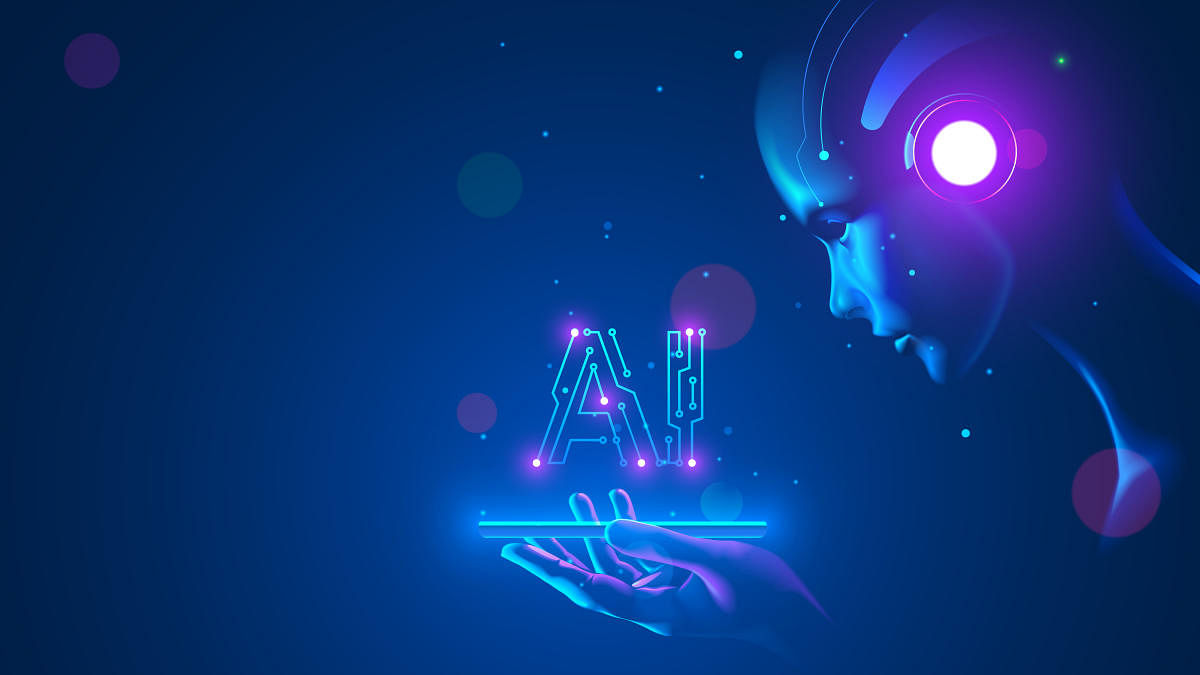
There is a famous saying that humans are the reproductive organs of technology. The quote seems to be mythically true as the tentacles of artificial intelligence (AI) have embraced almost all the domains of human life.
It was a momentous episode in the history of artificial intelligence when ASIMOV Robotics Pvt Ltd sent a humanoid (robot) to the Federal Bank seeking some banking solutions. Many such episodes compel humans to reflect on their creation and live in the fear of extermination. Due to unforeseen developments in the areas of AI, many myths and fears have percolated deeper into the human mind and given rise to many altered realities.
Once there was a requirement for creating a learning module based on gamification wherein the learners transform their behavioural patterns as they manoeuvre from one stage to another in the gaming module. The main objective was to infuse a customer service mindset among the employees who had the direct customer interface. Teams of consultants worked on various dynamics of gamifying learning modules while employees were furious and apprehensive. They started grudging, grumbling and feeling vengeful about the entire team. They derived immense pleasure by observing minute lapses in the project. However, the venture continued amid many accusations.
The above-cited episode raises many questions. Employees and creators of AI tools must introspect on some crucial questions that help demystify the role of AI and the indispensable nature of human intelligence.
- Why are we apprehensive about our creation?
- Is our invention an agent or an instrument?
- Do we derive joy in the failure of our creation?
- Are we creating the things that we cannot manage?
- Can’t we coexist with our creation?
Xenophobia and AI
American Psychological Association defines Xenophobia as an unreasonable or irrational fear of the unknown or strangers. The contemporary trend in interpreting the presence of AI reverberates the fact that AI is an unknown phenomenon for many. It is assumed that hatred or fear towards AI is sprouting from the depths of ignorance, not from rationality.
Employees fear treading unknown paths. The advent of disruptive technology in the form of AI has aggravated employees’ anxiety levels. So, they must navigate through the changes in the AI ecosystem and understand its operative dynamics.
Cronos syndrome and AI
Cronos syndrome can be defined as a fear of being replaced at the workplace. The managers with this symptom try to promote their trusted subordinates and build a human fort around them due to the fear of external threats. The recent trends in the evolution of machine learning, deep learning, image recognition, natural language processing and gamification have replaced humans in repetitive or sedentary assignments.
This trend has infused a huge amount of fear in employees that they may be replaced. AI is actually taking over only the repetitive tasks but not the tasks that involve creativity. Organisations are making their best efforts to create awareness about the role of AI and neutralise Cronos syndrome. However, people who are not creative and who love mundane clerical tasks may face problems.
Creator vs creation
Human intelligence is the gift of nature propelled by ninety billion neurons. The cognitive engineering of human intelligence through the natural process of evolution has made humans unique species. AI is the brainchild of human intelligence, but the AI revolution has been misunderstood. We have waged a war against our creation. Compared to humans, AI is just a technological entity programmed to mimic human behaviour and intellect and reproduce repetitive functions. It can never act independently as it has no brain with emotions, feelings or consciousness. Humans, being the creators of AI, should appreciate the vital role played by AI in making humans more efficient.
Disruptor, destroyer or creator?
There has been a mixed response about AI in the job market as it is closely connected to job replacement, disruptor, and creator. Studies imply that AI is not a job destroyer but a disruptor. It brings more automation and compels employees to adapt to new realities.
The regulatory, administrative, or repetitive job roles have been replaced by AI and it has paved way for employees to explore or create new jobs that involve creativity, emotional connection and direct interface with consumers. A disruptor is a phenomenon that triggers a constant change in job dynamics and compels humans to change accordingly. AI is constantly evolving and spreading its wings to various businesses and employees can no longer be complacent but strive to reinvent themselves.
Cognition and AI
The term cognition may be defined as a cerebral process of thinking, experiencing, and understanding. According to cognitive neuroscience or neuroplasticity, the human brain can add new neural networks based on new experiences or creative/logical thinking.
However, the unrestricted use of AI may lead to long-term cognitive paralysis and the efficiency of the human brain may deteriorate. Neuroscientists and cognitive psychologists opine that nature takes away the things that are not in use. Hence, there must be a rational adoption of AI in workplace roles.
Therefore, AI must be treated as an assistant and humans as the master. If we interchange the roles, there could be devastating consequences. A judicious combination of human intelligence and AI will help organisations reinvent or diversify their business models.
(The author is a behavioural science professor based in Bengaluru)